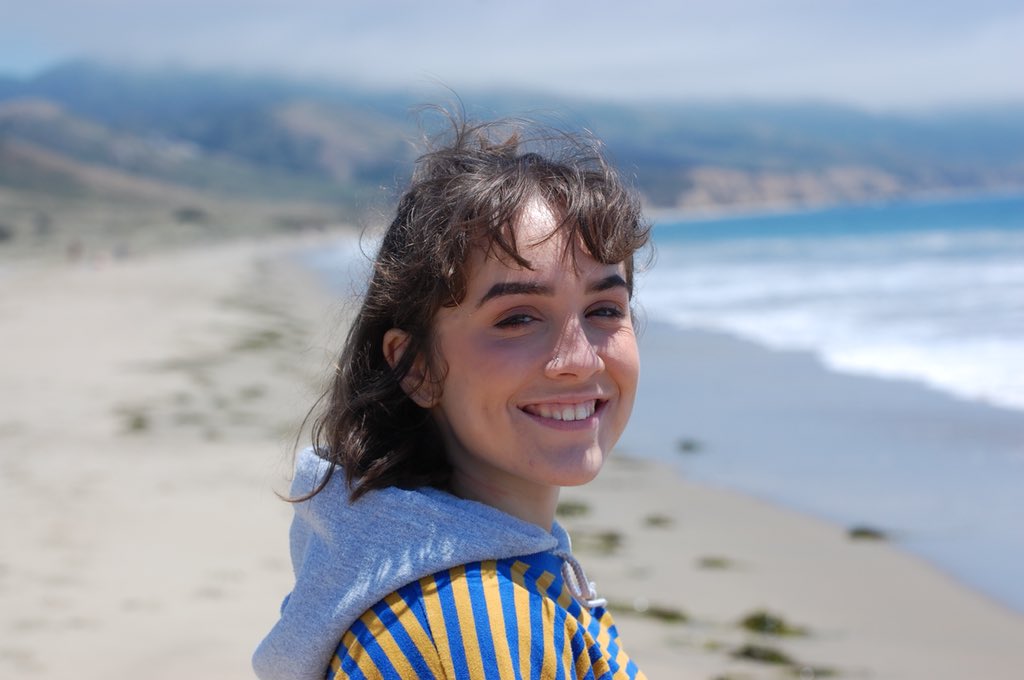The senior elementary education major and environmental education minor recently published an article in the international journal Environmental Education Research on the role of gender in nature-based learning experiences, and is immersed in the classroom as a student-teacher.
In her final year at Elon, elementary education major Abbi Decker ’21 is molding young minds in the classroom while helping shape an international conversation about gender and learning.
Decker, along with Associate Professor of Education Scott Morrison, has published an article in Environmental Education Research about the role of gender in nature-based education. Decker’s name appears alongside those of leading faculty, researchers and graduate students in one of the world’s top international journals on environmental education.
“Decoding gender in nature-based education: perceptions of environmental educators” focuses on 20 interviews Decker and Morrison conducted with nature-based educators across the globe about how they take gender into account in their interactions with children. The discussions showed many educators had not considered the ways in which gender and outdoor learning intersect, highlighting a crucial blind spot.
“Educators have to be really conscious of the way gender is emerging and realize moments where it’s happening,” Decker said. “They have to understand how to respond to that and to disrupt harmful gender experiences that students may be reiterating because that’s the only way that gender can be decoded in that space,” Decker said.
The study is part one of a two-part research project Decker has pursued since she arrived on campus. As a first-year student, Decker took an “Education and Society” course through which she learned about a variety of social issues impacting education and ways to address them. Decker immediately connected with a particular section of the course in which Morrison took students to Elon’s Loy Farm to demonstrate the value of nature-based learning. She recalls the freedom she felt in the outdoor classroom to explore and challenge the traits of “traditional” femininity.

“I remember thinking, ‘this is so special, I feel so free and focused in this space,’” Decker said. “I wanted to know what it was doing to how kids are understanding gender because I felt, as a woman, in that space differently than I felt in education before.”
Experiences like this are why Morrison stresses the importance of outdoor learning, a practice he first encountered as a sixth-grade teacher. “As Abbi’s story shows, students think differently about themselves and about teaching and learning when we change the space in which it’s occurring,” Morrison said.
Morrison was excited to hear about Decker’s interest in environmental education and agreed to help guide her research as the faculty mentor for her project. With the support of Morrison, as well as the Honors Program, Lumen Prize and two Sustainability Research Awards, Decker has spent her four years at Elon learning about how students experience gender in outdoor environments.
After interviewing teachers in phase one, Decker traveled to an outdoor preschool in Delaware, as well as two local schools, to witness first-hand how gender played a role in those environments. Combining the interview responses with Decker’s in-person observations showed that gender does in fact appear prominently in outdoor learning spaces and that educators must learn to better respond when gender arises in their classrooms. She calls on educators to not only recognize gender, but to understand its non-binary nature – seeing gender along a spectrum as opposed to seeing it as simply masculine vs. feminine traits.
“You can’t decode or disrupt gender if you’re thinking about it in a binary way,” Decker said. “That’s so essential for educators to realize and enact in their lives.”
Along with the article published in Environmental Education Research, Decker has shared her findings twice at the American Education Research Association’s annual meeting. She’s also been invited to several other international conferences alongside environmental education experts. Decker has already left a mark on the field, introducing new ideas and even inspiring her mentor along the way.
“It has been a delight to work with her on this because I’m now thinking about gender when I’m outside with my students in ways that I wasn’t before,” Morrison said.

The importance of considering each student’s needs is something Decker has taken into the classroom this semester. Decker is student-teaching fourth and fifth graders at North Graham Elementary School in Graham, North Carolina. She plans lessons and teaches students five days a week, focusing her curriculum on the things that interest her students.
The experience has been especially meaningful because Decker has learned to teach during a global pandemic. At North Graham, students have spent the year learning under a hybrid model – half of Decker’s students are in person while the other half learn virtually every day. The arrangement makes lesson planning more challenging as Decker has to create lessons that cater to students learning live in the classroom and virtual students who might choose to complete work on their own time.
“It’s a mix of in-person learning, virtual learning, asynchronous learning,” Decker said. “It definitely feels like if I can do this, I can do anything.”
Decker hopes to turn the lessons she’s learned as a student teacher and researcher into a career as a full-time, fourth-grade teacher after graduation. She’ll leave Elon with invaluable experience as a student, educator and now internationally published researcher. Decker plans to use everything she’s learned to engage young minds in a classroom of her own someday soon.
“My time at Elon is going to change all my future interactions with my students, it’s going to entirely revolutionize the way that I teach,” Decker said. “Not only have I grown as a scholar and as a researcher, but deeply as an educator and as a human being.”



